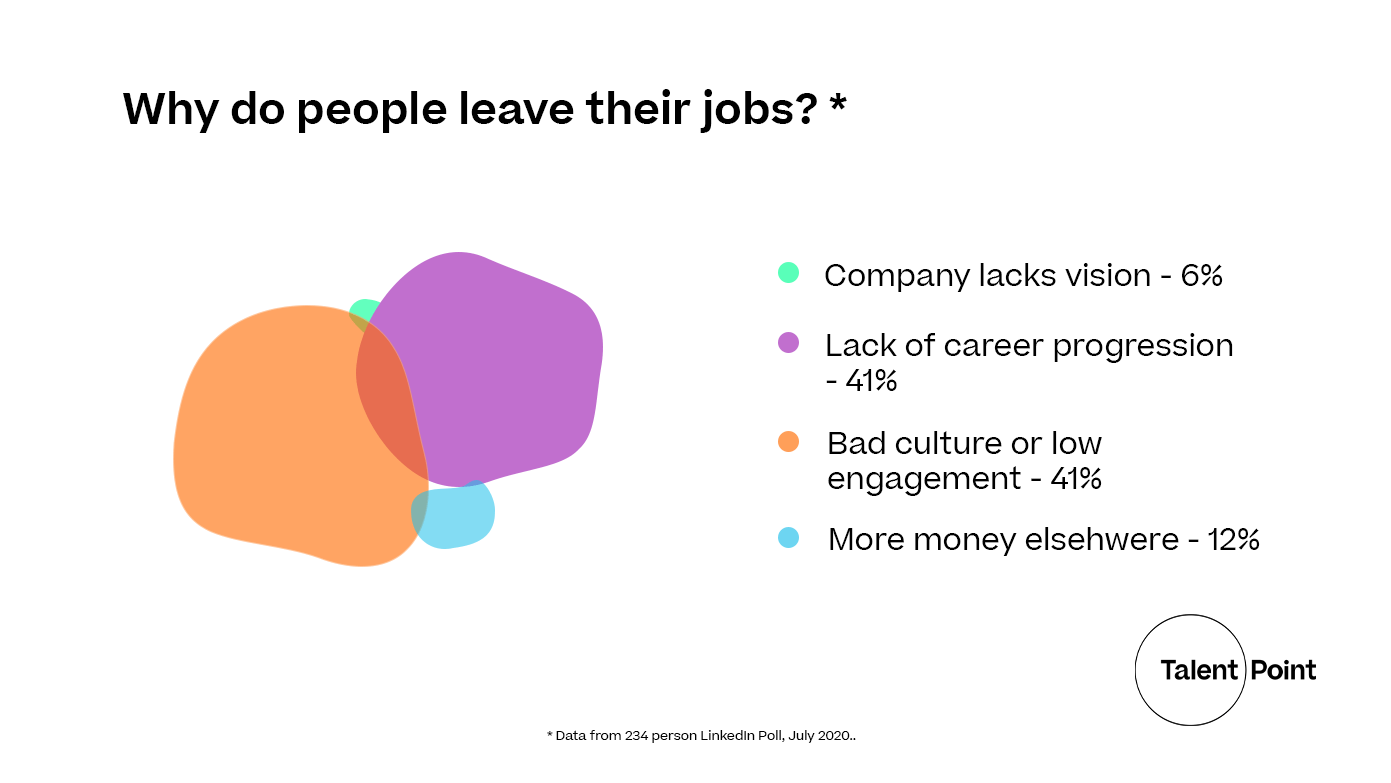Following up on our recent article exploring employee retention as companies scale, we asked our LinkedIn community the question – Why do people leave their jobs?
Over 230 people responded to the poll and it provides interesting insight into the reasons that drive lower retention rates.
Here is a breakdown of the results and our thoughts below.

At 41% a piece, ‘Lack of career progression’ and ‘Bad culture or low engagement’ together can be the reason 82% of your talent moves on. That’s a significant chunk of your workforce so it’s worth focusing on these right away.
What is good to know is that in most cases, you can begin to address a lack of career progression relatively quickly by building learning into every new hire. Do you really need someone to perform every skill on your existing job description on day one or can you allow applicants with the right core skills the opportunity to learn some of them? Can the market provide these skills and/or are they desirable?
The story can be very different for ‘Bad culture or low engagement’. It’s top down and involves everyone. From interview to off-boarding, every step effects culture and engagement and it requires a much broader approach to address. With it accounting for 41% of your leavers, the investment is worth making as the cost of constantly replacing hires wills always outweigh the cost of improving retention.
Salaries are always a contentious topic, highlighted by Martin Parker’s comment on the poll:
There's an old senior management myth that you don't need to pay people well because money isn't one of the prime motivational factors - but they never take into account that feeling undervalued and under or unfairly paid are major demotivational factors.
Although you might keep some of that 12% on-board with a better salary, we’ve all seen the stats on people leaving after counter offers so get in early, pay a fair wage from the start and make sure to reward the right behaviours. It’s a good idea to carry out some external research to better understand the landscape; what your competitors are offering; what is talent demanding.
The last one is a big one – Company lacks vision – with a surprisingly small share of the vote at 6%. Given everything is connected this could be factored in elsewhere as arguably lacking a vision leads to a bad culture or low engagement.
Are you taking the time to understand why people are leaving your business?
There is unlikely to be a single reason as every individual is different but if you are able to introduce data-led insight and processes into business you’re more likely to retain the talent you need to grow.
Get in touch if you need somebody alongside you to take you on this journey.

